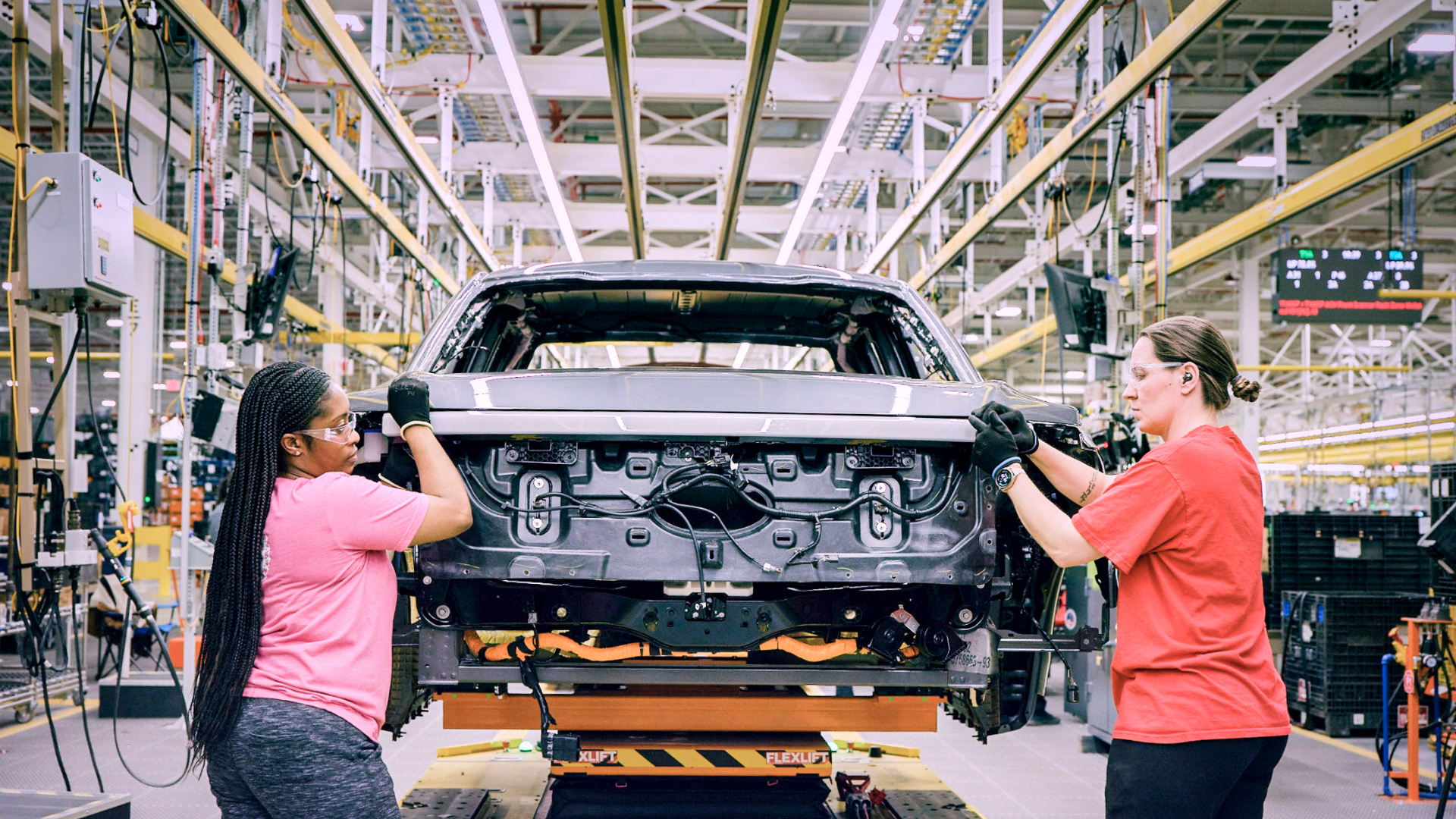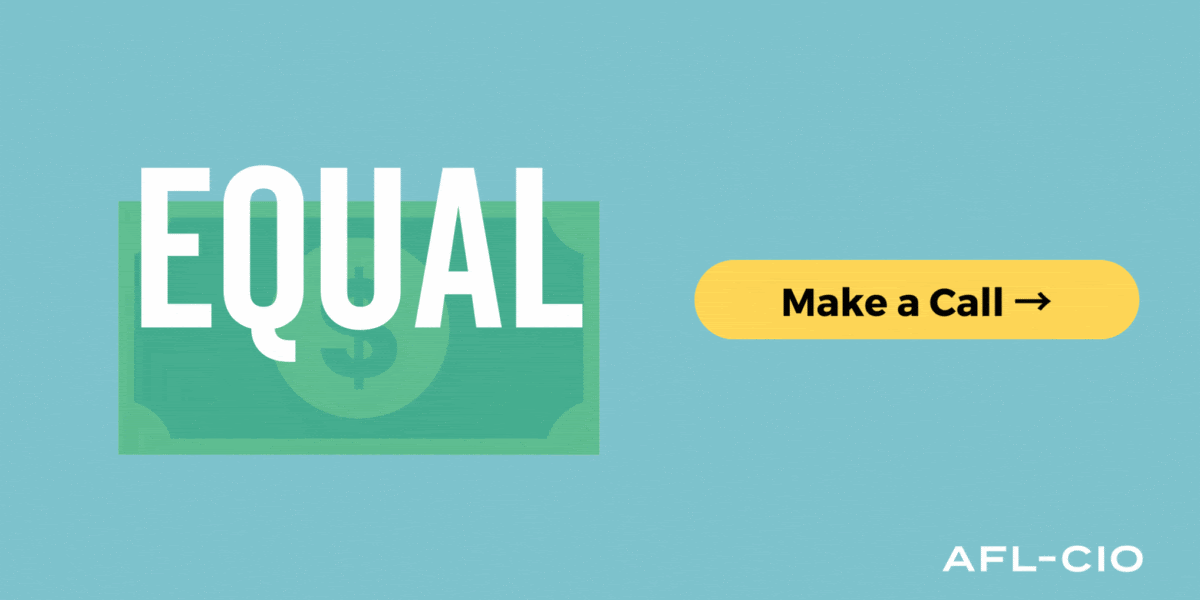Blog
Get Email Updates
Gender Equality
Virtual Event: Lifting Up Women on the Shop Floor
Updated 4/2/23
Picture a manufacturing worker. Are you imagining a woman wielding a torch or assembling an SUV?
The manufacturing sector provides good jobs with family-supporting wages and benefits, which do not require four-year degrees. More women should hold these jobs.
Yet they are underrepresented in manufacturing, particularly in the highest-paying jobs. This industry is poised to grow as the United States invests billions of dollars in infrastructure, technology and clean energy.
Join the Institute for Women’s Policy Research (IWPR) for a webinar to discuss the policies needed to create fair and equitable access to good production jobs in manufacturing. All workers should be part of this growing workforce.
IWPR will be launching its new report, Advancing Women in Manufacturing: Perspectives from Women on the Shop Floor.
You’ll hear the voices and experiences of women in manufacturing—especially union members and those who have completed apprenticeships. Learn about what helps and hinders their access, retention and success in good manufacturing jobs.
Speakers include Latifa Lyles, special assistant to the president for gender policy, White House Gender Policy Council; Leeann Foster, international vice president, United Steelworkers; Ariane Hegewisch, senior research fellow, Institute for Women’s Policy Research; Lark Jackson, program director, Chicago Women in Trades’ National Center for Women’s Equity in Apprenticeship and Employment; Zoe Lipman, deputy director, AFL-CIO Industrial Union Council; Alexandra Patterson, director of policy and strategy, Home Grown; and Shana Peschek, executive director, Machinists Institute.
Health Care
Nursing Home Initiative to Right America’s Injustices
The worst of the pandemic appears to be over but make no mistake: Our country is still dealing with the loss of life and disability left in its wake as millions of families are still recovering from this tragedy. It also revealed a truth about the inequitable economic treatment of women and workers of color.
Women dominate caregiving occupations, which are undervalued and underfunded. Women are paid less and lack access to child care and paid sick leave, even though they are often the ones who need it most. Women regularly face pay discrimination, yet they are the majority of workers in occupations that are not covered by the Fair Labor Standards Act, the federal labor law that ensures a minimum wage. Women are the most likely to be vaccinated against COVID-19, affording protection to others. But many lack a union, a voice at work to protect their own health, safety and economic interests.
Nowhere is this more true than in the nursing home sector, which is dominated by low-wage women of color: 87% of these workers are women, 61% are people of color and 27% are immigrants. The median hourly wage for nursing home workers is $13.56, and the median annual salary is only $20,200. As a result, 44% of this workforce live at or near poverty and 45% rely on some kind of public assistance. No worker should have to live under such miserable economic conditions; it’s especially egregious because caretaking is so grueling. We should be rewarding those whose work is caring for the most vulnerable among us. The poor economic conditions endured by this sector reflects our country’s institutional misogyny and racism.
Care work in homes and in institutions has a direct historical connection to slavery. Enslaved black women worked as servants in private households performing the most strenuous and unpleasant tasks. After slavery was abolished, black women continued to work as domestic workers in private households while earning very little. It’s past time we recognize and right these wrongs and compensate these workers fairly.
In 2021, President Biden announced a new initiative to establish a national minimum staffing standard for nursing home workers, improve compensation and make it easier for these workers to join a union. This is surely one of the single biggest ongoing initiatives to address the inequities facing women and workers of color; it is also one of the best solutions for addressing the emotionally difficult and physically dangerous working conditions these workers face.
The labor movement is already a movement for working women. Union women know the best way to combat injustice is with a union. Union members have greater access to paid sick days and parental leave. Nearly all union members (94%) have health insurance through our employers, compared with 69% for nonunion workers. Women covered by union contracts lost fewer jobs between 2019 and 2020 than women who were not in unions.
As the numbers show, it’s time to organize more nursing home workers. Numerous states, including Arkansas, New York and others, have acted during the pandemic to improve working conditions in this sector—creating pilot programs to pay nursing home workers more and increase staffing levels to improve working conditions.
But we know that having a union is the best way to make sure workers continue to get a fair shake, even after state legislatures have moved on to other issues.
The Biden administration’s initiative would improve the quality of care for nursing home residents and their families. Far too many are willing to overlook the working conditions that women and workers of color face. All of us will age, and many of us will come to need some kind of assistance or elder care. Many workers are already struggling to care for aging loved ones. We may overcome serious medical conditions, yet face a lifetime of ability challenges. We want older and disabled people living in a facility to get the best possible care and live out their final years in engaging and supportive environments. That can’t happen unless workers there are paid fairly, treated right and are able to thrive.
Gender Equality
Call: Paycheck Fairness Act
The Paycheck Fairness Act increases penalties when employers violate equal pay provisions. It also makes it unlawful to prohibit employees from discussing their wages. Take two minutes to ask your senators and representative to support the Paycheck Fairness Act.
Make a Call.
Today is Equal Pay Day because women have to work until March 14, 2023, to earn what a man made in 2022.
The gender wage gap leads to a loss of some $400,000 over the course of a working woman’s career. For women of color, that loss is even steeper. Read that again: $400,000.
The Paycheck Fairness Act would help close the wage gap in a few different ways by:
- Making it unlawful to prohibit employees from talking about their wages.
- Increasing penalties for violating the equal pay provision.
- Directing the Department of Labor to provide trainings for negotiating compensation and working conditions.
It’s time. Women should get equal pay for equal work.
If you agree, take two minutes to call your senators and representative. Tell them to vote YES on the Paycheck Fairness Act.
Gender Equality
International Women’s Day
Women are now nearly 50% of the workforce—yet inequality in the workplace continues. Unequal pay, harassment and discrimination are just some of the abuses women face daily.
But when women stand together, they can demand equality. And a union contract delivers.
We must do everything we can to protect our right to organize, especially from union-busting CEOs like Howard Schultz at Starbucks.
On Tuesday, Liz Shuler, president of the AFL-CIO, spoke at the Senate, imploring senators to pass labor laws that protect our constitutional right to organize and collective bargaining.
Watch President Shuler's Testimony (Starts at 11:54)
The quickest way to equal pay (and equal treatment in every way) is a union contract. And we need laws that protect us and our right to organize.
2023 Women Labor Leaders
This Women’s History Month, we’re profiling leaders who are making women’s history across the labor movement today.
There’s been a surge of organizing by women. Some 60% of workers organizing in the past decade have been women, and that means female leadership is the rule, not the exception.
Here are just a few of the women leaders organizing in 2023.




